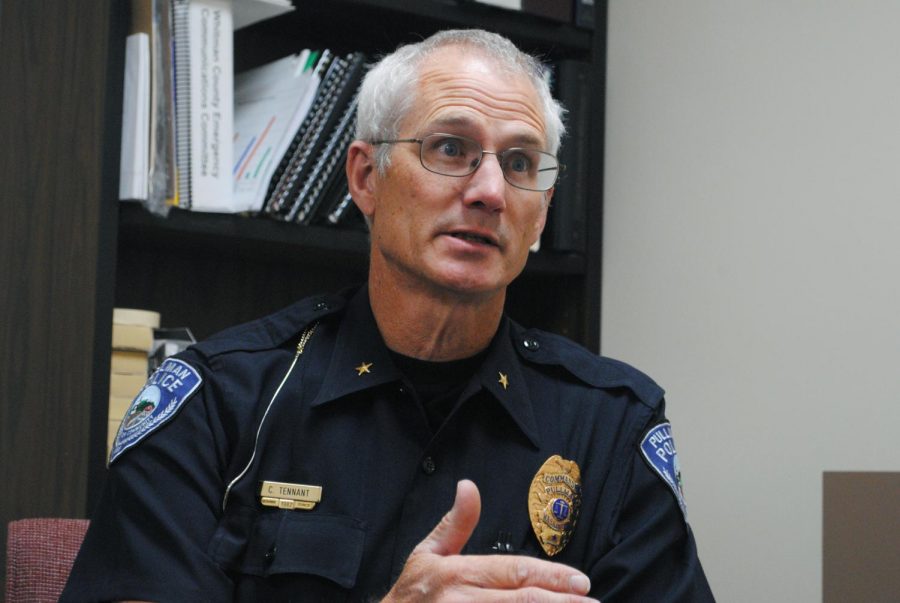Pullman Police are doing more despite shrinking department
Limited budget, increased calls does not stop police from covering Pullman, students
ALYSSA STANFIELD | THE DAILY EVERGREEN
Pullman PD Cmdr. Chris Tennant describes how the upcoming WSU school year has an impact on the department and the types of police reports made.
August 30, 2018
When we talk about the strategic allocation of taxes for Pullman, we often remove all sense of perspective when it comes to the vital use of these resources to maintaining public order.
No case could be truer than that of the Pullman Police Department.
Pullman Police, as part of the general fund, has received a budget of around $7 million this year, according to City of Pullman statistics.
That may sound like a lot for a department which has not seen much growth over the past few years and often goes unnoticed, but I can assure you that it is not.
With the biggest freshman class at WSU in recent years and a department that has dropped to 29 officers, Pullman Police have had to stretch their resources to provide order and security to the area.
“Two weeks ago we were averaging 25 calls for service in a 24-hour period,” Pullman PD Cmdr. Chris Tennant said. “Last night we had 71 calls for service in that same 24-hour period, and so obviously the students coming back to school and starting definitely has an impact on everything that we do.”
Calls for service appear to have consistently grown since 2013, according to Pullman Police’s 2017 Annual Report, prompting an urgency in police presence despite available resources.
Even with a low crime rate that predominantly subjects the department to calls concerning property and alcohol offenses, Pullman PD has had to go beyond mere enforcement of the law to mitigator of social norms.
“When you have a high quality of life and you have a police department that is able and willing to deal with some of those issues,” Tennant said, “then we deal with a lot of types of calls that may not be traditional … we deal with a lot of noise complaints, we deal with an awful amount of parking complaints, we deal with garbage complaints, we deal with noxious weed complaints.”
Capital improvement projects have allotted the replacement of portable radios department-wide, as well as plans for future expansion of the police building within the not so distant future. But this simply isn’t enough.
As students of WSU, we have a duty to our education as well as an obligation to the institution that is laying the groundwork for our future. We must step up and meet our law enforcement officials halfway.
Regulating disputes as adults, advocating for healthier lifestyles choices and transitioning into contributing members of society would monumentally improve the relationship students have with their local police away from trepidation to a more stable tomorrow.

















